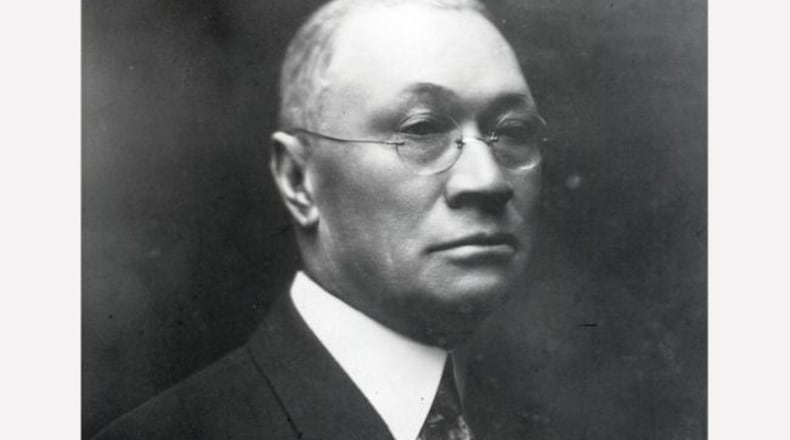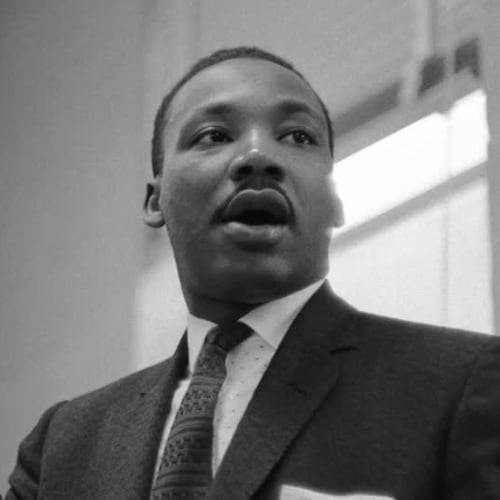From the archive: This story originally ran on Feb. 17, 2016, as part of the initial AJC Sepia Black History Month Series. In 2020, Census data reported that the median annual household income for African Americans in Atlanta was nearly $42,000, higher than most U.S. metropolitan areas.
Talk about rags to riches.
Alonzo Herndon was born a slave on June 26, 1858, in Walton County. At the end of slavery, Herndon’s father – a white slave master – turned his family out into the world with nothing.
Herndon worked as a peddler, giving part of his meager earnings to his family, while saving some for himself. In 1878, with $11 in his pockets, he moved to Coweta County, where he trained as a barber, before moving to Jonesboro to open his first shop.
He moved to Atlanta in 1883, bought a stake in a barbershop on Marietta Street, and by 1904 he owned three shops in Atlanta – including a magnificent shop at 66 Peachtree St. that catered exclusively to whites and featured crystal chandeliers and gold fixtures.
As his business grew, so did his fortunes. He invested heavily in real estate. Then in 1905, he purchased a failing mutual aid association, which eventually became Atlanta Life Insurance Co. As Atlanta Life expanded into Florida, Kansas, Kentucky, Missouri, Tennessee and Texas, Herndon became Atlanta’s first Black millionaire.
Credit: Joey Ivansco
Credit: Joey Ivansco
Herndon also was a founding member of Booker T. Washington’s National Negro Business League in 1900. Five years later he was one of the original members of the W.E.B. DuBois-led Niagara Movement. Herndon also contributed to the support of local organizations and causes, such as the Carrie Steele, Leonard Street, and Diana Pace orphanages, Atlanta University, the first Congregational Church, the Southview Cemetery, and the Atlanta State Savings Bank.
He married Adrienne Elizabeth McNeil, a professor at Atlanta University, which later became Clark Atlanta University. They had one child, Norris.
In 1910, as a symbol of his wealth, he built a palatial Classical Revival mansion in what is now Atlanta's Vine City. The Herndon Home is a National Historic Landmark.
Alonzo Franklin Herndon died in 1927. His son, Norris, succeeded him as chief executive of Atlanta Life Insurance Company.
About the Author
Keep Reading
The Latest
Featured



